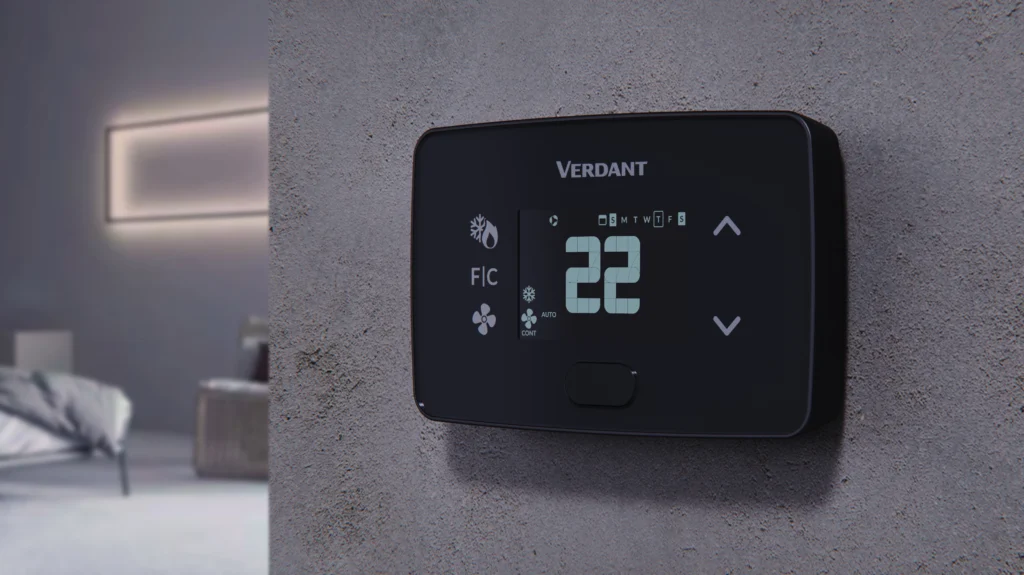The hotel industry is about more than providing short-term, temporary lodging. It’s also about providing a certain guest experience at a given price point, and that guest experience is largely defined by the services and amenities offered.
Of course, there are costs associated with providing any service or amenity, and the biggest part of those costs comes from energy consumption. As Forbes reports, “60-70% of [a hotel’s] utility costs are exclusively billed for electricity”. And according to Energy Star, while US hotels spend an average of $2,196 per available room per year on energy, the global hospitality industry spends $3.7 billion annually.
In other words, energy costs are operational costs that impact a range of hotel KPIs — including GOPPAR, RevPar, and CPOR, to name just a few. So reducing a hotel’s energy consumption not only improves hotel profitability, but even increases the value of that hotel property. And fortunately for hotel managers, there is no shortage of hotel energy management technologies and best practices they can invest in to improve both guest comfort and hotel profitability.
Ways to Improve Hotel Energy Efficiency
From energy management technologies to operational strategies, there are a number of ways that hotel managers can reduce their energy consumption. And while some of these involve infrastructure upgrades, the cost of those upgrades is greatly outweighed by the costs-savings (and enhanced guest comfort) that they provide.
Smart Thermostats

Climate control is essential in any hotel, representing a significant portion of overhead and operational costs. Fortunately, smart thermostats give hotel managers the ability to streamline energy consumption in both common areas and guest rooms. Indeed, they adapt to both peak usage periods and respond to real-time occupancy patterns.
For example, when guest activity typically decreases in common areas overnight, hotel managers can program smart thermostats to reduce energy use and waste. Similarly, our smart thermostats (e.g. VX4, VX and ZX Smart Thermostats) can also be programmed around high-occupancy patterns, ensuring optimal heating and cooling conditions at all times.
Of course, not all smart thermostats are created equally. While consumer-grade smart thermostats are best suited for single family homes, commercial properties (such as hotels and MDUs) require a more commercial-grade option capable of managing multiple areas with distinct occupancy patterns.
Occupancy Sensors
Smart thermostats that respond to real-time occupancy patterns rely on another smart technology to do so: occupancy sensors. Verdant’s sensor network, for instance, adapts to real-time fluctuations in occupancy patterns, optimizing energy consumption without compromising guest comfort. This ensures that unoccupied spaces are not needlessly heated or cooled.
Smart HVAC Energy Management Systems
Much like smart thermostats and occupancy sensors, smart HVAC energy management systems play a critical role in the overall guest experience at a hotel. After all, climate control is central to guest comfort. Smart HVAC energy management systems significantly reduce energy waste, ensuring common areas and shared spaces are neither overcooked or overheated when no one is occupying it.
Smart HVAC systems can gather extensive data, including peak demand loads, historical thermodynamics, and local weather conditions. Then they analyze this data to continuously streamline energy use based on real-time occupancy patterns. Best of all, these occupancy sensors (i.e. VX and ZX occupancy sensors) are also compatible with third-party lighting systems.
In fact, hotel operators can reduce HVAC runtime by up to 45% with the Verdant system, resulting in the lowest payback (or breakeven) period of energy management installations. Some hotel operators even recoup their initial investment in as little as 12 months.
Air Source Heat Pumps
Hotel managers can also invest in Air Source Heat Pumps (ASHPs) to maximize energy savings. This simple HVAC hardware upgrade reduces HVAC runtimes and overall energy consumption by transferring cold and warm air from outside to the interior of the hotel, to space where it’s needed, supplementing the hotel’s energy consumption from the grid.
Air Source Heat Pumps are energy-efficient alternatives to traditional space heaters and air conditioners in areas that are thermodynamically problematic. This can include poorly insulated common areas, or high-traffic shared spaces, reducing overdependence on central HVAC systems.
Upgrade Appliances
A major contributor to energy costs in hotels is “vampire power draw,” also known as standby power. This occurs when electronic devices and appliances consume electricity even when turned off, as long as they remain plugged in and in standby mode.
Fortunately, energy-efficient appliances come equipped with automatic shutdown sockets, which significantly reduce energy waste. Indeed, automatic shutdown sockets employ timers or infrared sensors to cut power to any connected appliance when the device is not in use, or the space is unoccupied. Essentially, these energy-efficient appliances give hotel managers the ability to save on powering devices without compromising guest comfort.
Smart Lighting Systems
In hotel management, “keeping the lights on” is more than just a saying. Like smart HVAC systems that use occupancy sensors to adapt to real-time guest activity, smart lighting enables hotel operators to cut energy costs while maintaining a top-tier guest experience.
Smart lighting solutions ensure optimal lighting in both common areas and guest rooms. Best of all, many smart lighting systems are easy and affordable to install, integrating seamlessly with Verdant’s Energy Management System. Smart lighting solutions significantly reduce energy consumption and operational costs.
Smart Windows
While there are a number of energy management technologies that help hotel operators streamline energy consumption, there are also a number of technologies that can be installed to reduce the need for energy. Notably, energy efficient windows ensure better insulation, reducing the need for excessive heating or cooling, which in turn, lowers HVAC loads and shortens runtimes.
In fact, according to the US Department of Energy, “ENERGY STAR® qualified windows […] filter out ultraviolet light [which saves significantly on] heating and cooling costs.” And while initial investment may seem high, the financial upside is significant. As Modernize points out:
“energy savings are not the only way to calculate the worth of a new window installation. New windows also increase […] property value. In fact, installing a set of new vinyl windows could add as much as $12,000 to [a] home’s selling price.”
In other words, energy efficient windows not only reduce HVAC energy costs, but can also be used to increase the value of the hotel itself.
Solar Panels
One of the most proactive ways in which hotels can reduce energy costs is by being less-reliant on the grid. Renewable energy sources such as solar panels, provide an additional opportunity to cut expenses while promoting sustainability.
Solar panels provide hotel operators with a two-fold opportunity to reduce energy costs. For one, solar panels lower dependence on the conventional energy grid. Hotel operators can then sell back additional energy production back to the grid.
Smart Water Heating Systems
From food and beverage service to guest room amenities, pools, laundry, and sanitation, water costs are hidden energy costs. Smart water management represents a significant amount of operational costs. In fact, hotel water usage accounts for 15% of all US commercial and institutional water use.
Consequently, many hotel managers have implemented smart water heating systems to reduce waste, curbing heat and water pumping costs. According to McGraw-Hill Construction, smart water energy management systems can reduce water consumption by 15%, energy use by 10%, and operating costs by 11%. Smart water heating systems streamline carbon emissions, while offering significant cost-savings.
Streamline Hotel Energy Consumption with Verdant Plus
With Verdant Plus, hotel managers can optimize their energy consumption and maximize guest comfort. Beyond energy savings, Verdant Plus offers exceptional support and long-term value. The service provides proactive alerts to staff, ensuring timely issue resolution and minimizing energy waste. Monthly savings reports keep stakeholders informed, while dedicated support representatives offer personalized assistance. To ensure a seamless installation and ongoing operation, we provide a free on-site tech visit during the first year. With a lifetime warranty and attic stock, customers can rest assured that replacement units are always readily available, delivering a reliable and efficient energy management solution.
Improving Hotel KPIs with Verdant
Similar to other commercial properties (e.g. student living and senior housing facilities), value-added services represent a significant cost center for hotels. While cutting operational costs is part and parcel of managing a hotel, it is essential that cost-cutting measures don’t come at the expense of guest satisfaction.
Hotel managers, however, can employ a number of energy management best practices that not only reduce energy waste, but create new revenue opportunities. From smart thermostats to smart water management, hotel operators can streamline energy consumption and reach their financial goals while maintaining and improving guest satisfaction.
Unlock Energy Savings at Your Property with Verdant!
Are you looking to make your property more energy-efficient and cut down on utility bills? Discover how our innovative solutions can help you achieve significant energy savings.

